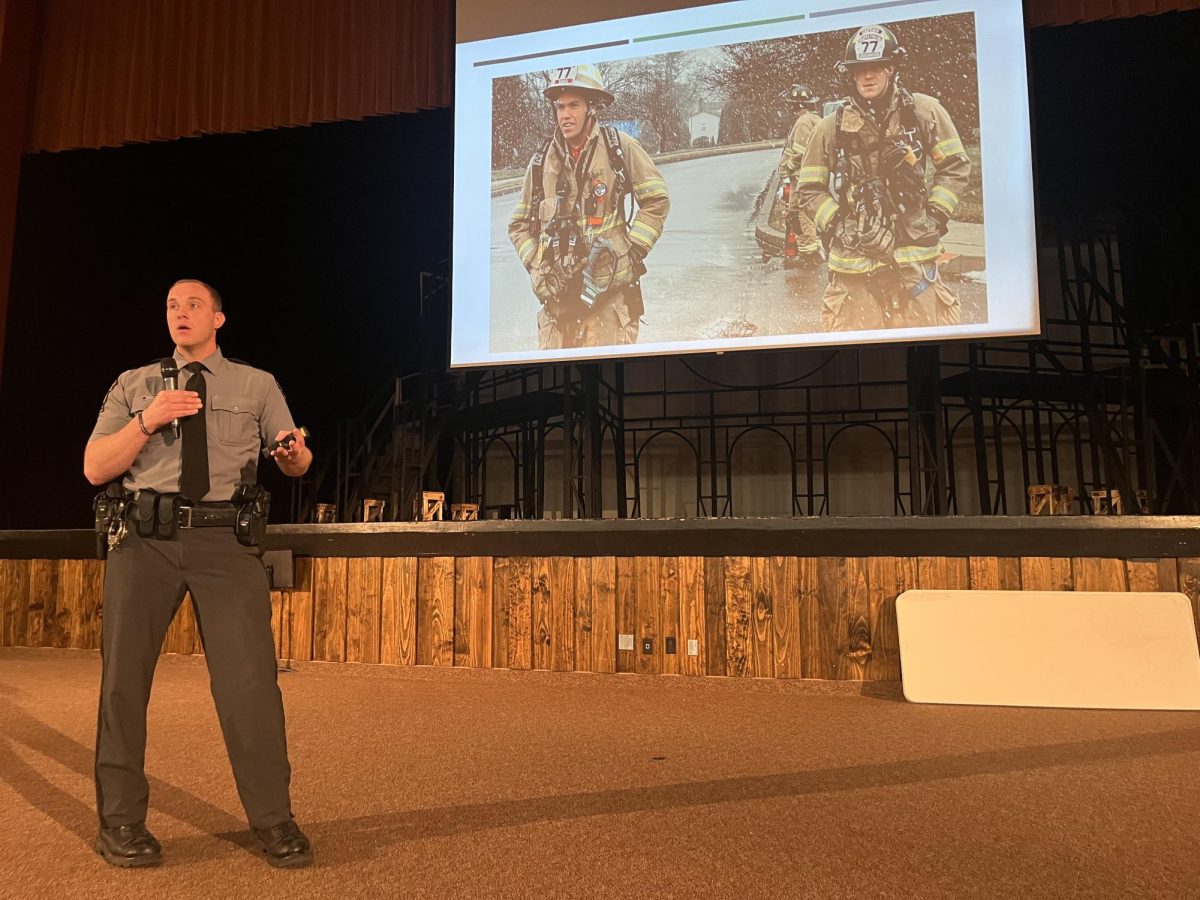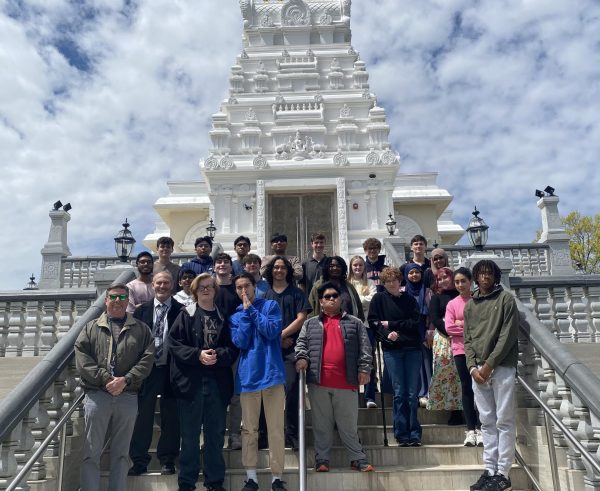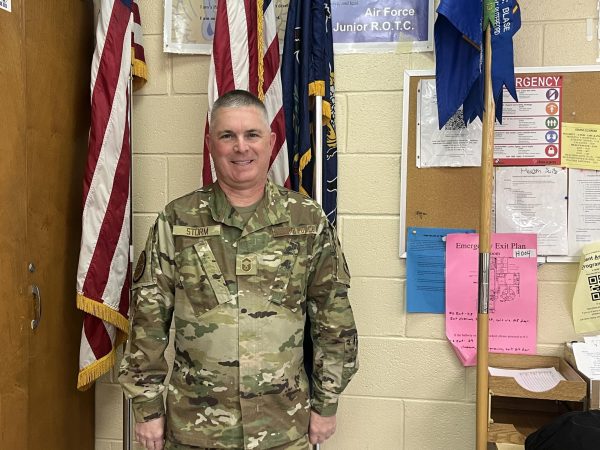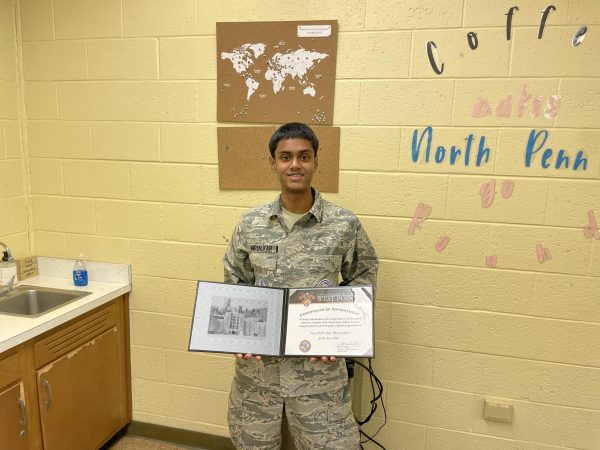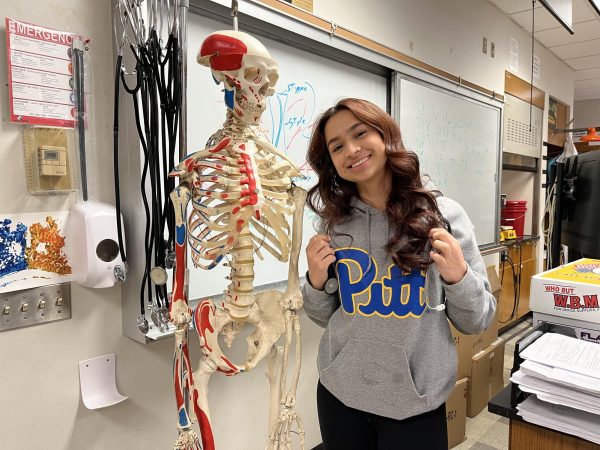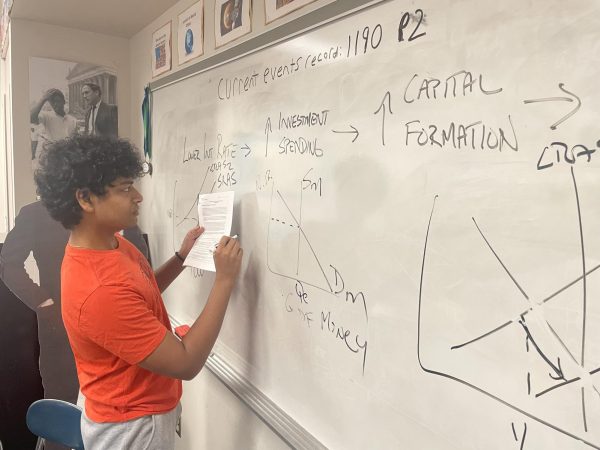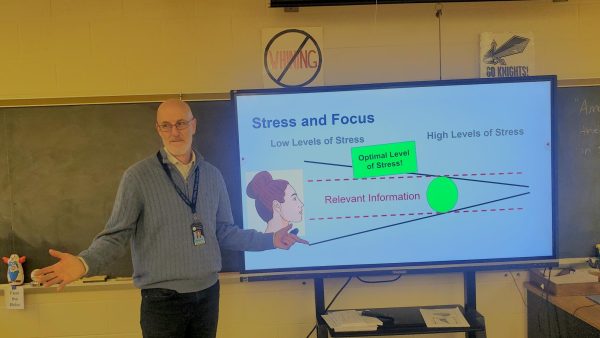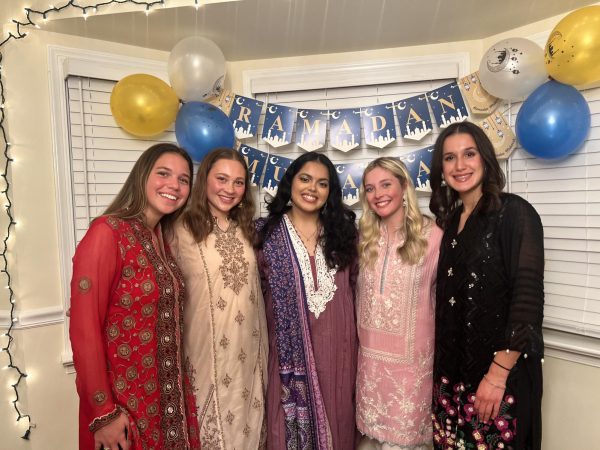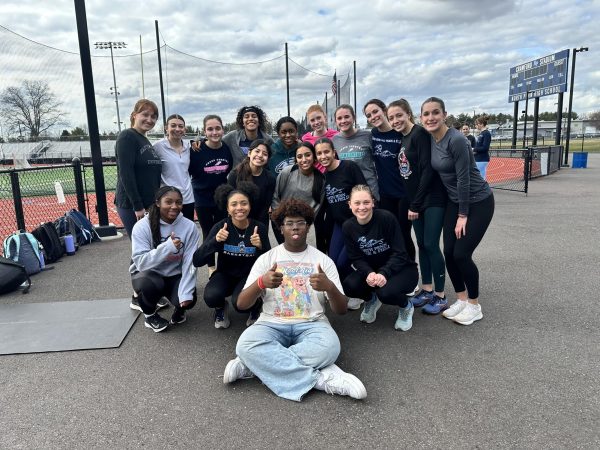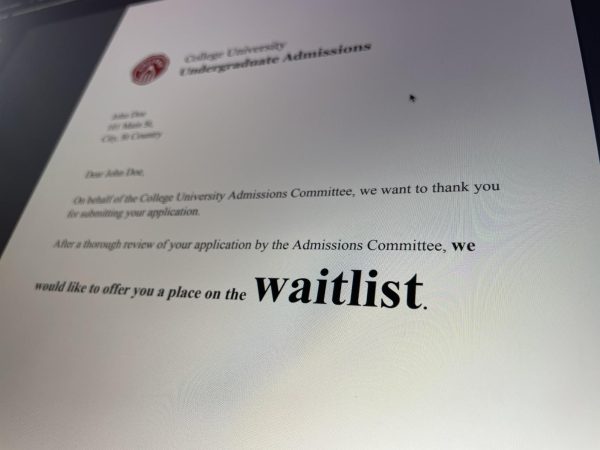An inside look at guidance counselors’ yearlong balancing act
North Penn High School Counselor Mrs. Christine McCreary checks the College Board website before meeting with several students to discuss course selection and college plans.
March 10, 2015
Just as a juggler has to juggle a number of different objects in order to be successful in what they do, a guidance counselor has to juggle demands from students, faculty, and parents. The role of a guidance counselor has evolved throughout the years, becoming a more dynamic position. Even though academic counseling is still very much around, personal counseling has become more prominent, thereby adapting the guidance counselor into a school counselor.
Mr. Brian Daly is in his fourteenth year as a counselor at North Penn, and he is more than familiar with the stress of being responsible for a lot of kids, because “there’s a lot of hats that counselors wear and a lot of balls [they] need to juggle.”
Being a counselor is all about prioritizing and learning how to handle everything that lands on the desk. It always seems to be busy, but there are times when counselors are in even higher demand.
Some days come with extreme stress for Mrs. Christine McCreary, who is in her sixteenth year of being a counselor. “I feel like there are not enough hours in the day to get everything done,” she said.
“The number of students coming in to request meetings is hard to handle,” said Daly. “It’s mathematically hard to handle in one day.”
There always seems to be something happening from the beginning of the school year to the very end.
“It’s constantly busy, but it’s a different kind of busy. In the beginning, it’s a lot of schedule changes, leveling, and college applications,” said McCreary.
After that, the holidays come and go, meaning that it’s the end of the first semester and therefore time for course selection for the following year. This is one of the most demanding times for counselors simply because every student wants to talk about their future.
At this time, while sophomores and juniors try to decide what courses they want to take, seniors are trying to tidy up any loose ends and obligations before graduation day in June.
Despite the high-stress environment, Daly looks forward to this time of year.
“[Course selection] gives us the opportunity to do what most of us got into this for, and that is meeting with our students and finding out about them.”
“I like meeting with my students one on one,” said McCreary. “That’s where I get to see all of my students and not just the ‘frequent flyer’ students.”
Counselors work tirelessly to put aside time for each of the 200+ students that they are assigned, plus any other parents or faculty.
The doors are constantly revolving into a counselor’s office, meaning it’s impossible to know what’s going to be brought up next. Life as a counselor is rarely boring, because no two days are alike.
“There’s a lot of variety to my day, which I like because I’m not always sitting, and I’m not always saying the same thing,” said McCreary. “The individual stuff, the things that make people who they are, is all different, and that is exactly what I like about my job.”
Being able to sit down, to have a mature conversation, and to act as a mentor or role model to so many people is ultimately the most important and most fulfilling thing about the position.
“As a school counselor, at the end of the day, our job is to really just advocate for students,” said Daly. “Oftentimes we have to step back and say, ‘This can wait,’ ‘That can wait,’ ‘I’ll be a little late to this meeting,’ and ‘Here’s what we’re going to do.’”



